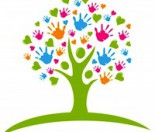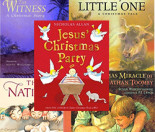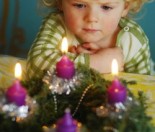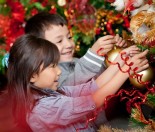Have you ever bought a gift and then realised it was better suited for a younger child or it was too ‘old’ for the child? Perhaps you bought a toy and then a week after Christmas it was in the bottom of the toy box never to be played with again? Not sure of what to buy your own child, grandchild, niece or nephew? Want to buy something that is not only fun but encourages early childhood education too?
Here are some toys and gift ideas that will suit a child’s age, hold their interest and encourage learning through play.
Birth to 6 months
Lullaby or infant sleep CD – Music can be very soothing to infants and can be part of a settling routine for bed.
Textured floor play mat – Floor play is really important for young babies, giving them the opportunity to stretch and experiment with movement. The texture on the mat will appeal to their stage of learning through sensory play.
Front pack/baby carrier – Young babies love to feel close to you, adding to their sense of security and belonging. Also on a practical level there is no bulky pram to get in and out of the car if you are going out.
Sock rattles – Infants are learning through cause and effect. Through wearing the sock rattle they are rewarded with sound each time they kick and move their legs. This helps to make connections between the brain and body, and an understanding that their actions have a reaction.
Their hands or feet made into impressions or casts – They will only be this tiny once! These are a lovely memory for parents.
6-12 months
Infant swing – Most infants love the rhythmic movement of a swing and are exploring their own body and movement.
Tunnel – A pop out tunnel is great for a newly crawling baby and is a way for children to explore how their own body fits in the environment around them.
Stacking cubes or posting boxes – Develops the concepts of size and shape as well as cause and effect.
Anything baby safe that makes a noise or has texture – Young children learn primarily through their senses so sensory based toys are stimulating and interesting to a young infant.
Baby safe mirror – Is that me or another baby in the mirror? Great for self awareness and when used on the floor helps to make tummy time more fun.
Books – Sturdy board books and textured books with pictures of other babies, animals or common objects. Start a lifelong love of reading.
12 -18 months
Pop up tents and huts – These are great as your young toddler likes to hide and sometimes wants to start having their own space.
Rocking horse – Extends large muscle development. Children like being able to control the speed of the rocking themselves.
A ride on bike – For your child to explore their balance and strengthen their muscles.
Paddling pool – Fill with water or sand in summer, or in winter fill with balls or cushions and books for a cosy space. (Remember to supervise at all times around water).
Bath toys – Brings some fun into their bath time routine. Develops pouring skills and also imaginative play with boats, mermaids, dolphins and more.
18 months to 2 years
Pretend play starts to blossom at this age. Things you buy will last right through to five years old and beyond early childhood. Think of dolls, prams, tea sets, garages and vehicles. If possible look for good quality wooden toys that will last.
Hammer and peg toy – An appropriate and positive outlet for a child’s desire to be noisy and bang things!
Play dough and tools – Gets all the fingers in their hands moving ready for learning, and is also a good prop for pretend play.
Simple peg puzzles – A good introduction to puzzles while enhancing problem solving skills and hand eye coordination.
Buckets/spades – Encourage hand eye coordination and are great for exploring ideas around size and weight with sand.
Water/sand table – In New Zealand it can often be too cold to hop in a paddling pool! A table style is all weather and can be used for sand, water, ice and more.
2 – 3 years
Art easel – Creativity using paintbrushes and other tools develops the same skills needed later for writing, and an easel is great for indoors or outdoors.
Trike with pedals – This will encourage growth in the areas of strength, balance, and timing. Fantastic for burning up pent up energy.
Costumes – Think of costumes such as fairies, dinosaurs, fire fighters and props such as doctor kits. Fantastic for enhancing imaginative play. Pretend play is also wonderful for developing language skills.
Construction – Wooden blocks or large plastic duplo style blocks. Construction focuses on three dimensional problem solving, math concepts and facilitates creativity.
Musical instruments – Exploring rhythm and setting the foundation for a love of music.
3-4 years
Threading beads – Extends small muscle development and encourages exploration of pattern and sequence.
Puzzles – Look for larger floor style puzzles with a theme based around the child’s interest. For example a dinosaur puzzle or digger puzzle.
Construction – Activities such mobilo, gears sets or magnet based construction are good for shared play, such as groups of friends or siblings and provide opportunities to work together.
Dolls house and train sets – Following on from the toddler interest of pretend play, dolls houses and train sets promote creative play and role play. These are more good shared play activities for siblings, including mixed ages.
Magnadoodle – Enhances drawing and writing skills and is excellent for car trips, at the bach or out at restaurants for mess free fun.
4- 5 years
Physical equipment – Stilts, skipping ropes, balls and hoola hoops extend overall strength and coordination. They also foster confidence and an enjoyment of being active.
Art, craft and collage kits – Brings out the little artist in your child, encouraging creativity.
Books with a CD story – Promotes listening skills and early literacy.
Activity kits – Things to make with some adult help such as a robot kit or make your own piggy bank. These kits are a chance for your child to practise following steps and develop persistence and attention span in completing a task from start to finish.
Large floor puzzle 50+ pieces – Gives your child a sense of achievement and satisfaction in completing a challenge.
Scooter – Encourages the skills of balance and coordination and also to be active. Scooters are portable so easy to pop in the boot and take to the park or on holiday.
Science or experiment kits – Children get lots of chances to develop literacy and numeracy skills. It’s great to bring in some science to develop their thinking and prediction skills.
Real cooking set for cupcakes – Fabulous for the little helper who always wants to be with you in the kitchen.
Kites – Great if you live in a windy city! You can buy ones that you make or are ready made. Kits help to develop cause and effect concepts.
There are a few ideas to think about. Watch your child when you visit friends’ places, play group, childcare, or the toy shop to see what catches their attention and keeps them interested. Follow their interests and passions when choosing a gift and you can’t go wrong.







large dolls are always popular at Xmas, one very popular one is the Notalie doll.